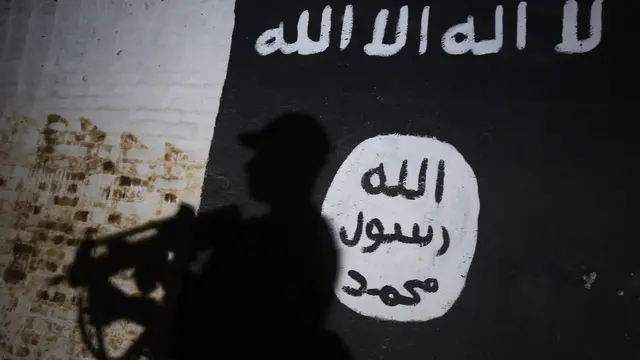Global terrorism may seem to have gone virtually silent during the COVID-19 pandemic.
But extremist groups like ISIL have not gone to sleep. According to the United Nations Counter-Terrorism Office, they are still active in conflict zones and taking the opportunity to step up the use of a variety of nonviolent means in a bid to expand their influence. As a result, the global community is being urged to confront the threat by strengthening cooperation in fighting terrorism.
In a report presented on Monday to the Security Council on the threat by ISIL to international peace and security, the head of the office, Under-Secretary-General Vladimir Voronkov, warned that "opportunistic propaganda efforts" by ISIL could still be inspiring future attacks by individuals in a captive audience that has been confined at home because of the pandemic.
At the same time, the Russian diplomat said the pandemic has raised additional concerns about the potential use of cybercrime to raise and move funds for terrorist acts.
Nevertheless, lockdowns, curfews and travel restrictions have complicated terrorist planning and operations, making it harder for terrorists to move and mount attacks.
But Voronkov said it is unclear just how the pandemic is affecting overall recruitment and fundraising by ISIL.
Syria and neighboring Iraq remain ISIL's main stomping grounds where the group and its affiliates have reorganized and have even been staging bold attacks, the Security Council heard. ISIL is also consolidating its position in some parts of the Middle East previously under its control and "operating increasingly confidently and openly."
While the threat of terrorism has increased in conflict zones in the region and elsewhere, it seems to have fallen in non-conflict areas.
The report said this is because ISIL has not been able to reconstitute its external operations capability and anti-COVID measures around the world appear to have reduced, at least temporarily, the risk of attacks in many countries outside conflict zones.
"The international community needs to stay attuned to how the threat of (ISIL) continues to evolve during and after the pandemic to adjust its response," Voronkov told the Security Council during the video-teleconference briefing.
'Protection of the vulnerable'
UN member states, he continued, must therefore strengthen international counterterrorism cooperation and assist the most affected countries.
Voronkov also drew attention to the thousands of suspected ISIL fighters and family members who are stranded in conflict areas and for which the COVID-19 crisis has further complicated their "already dire and unsustainable situation."
He also reported on ISIL operations in other areas of the world.
Voronkov described ISIL in West Africa Province and its 3,500 members as a "major focus of ISIL global propaganda," with its most dangerous cell in the tri-border area of Burkina Faso, Mali and Niger, he said.
In Europe, the threat continues to come mainly from internet-driven homegrown terrorist radicalization, he said, while also noting that a rise of right-wing violent extremism means that intelligence services in some European countries are shifting their priorities away from ISIL.
(Top Photo: Children playing in the section for foreign families at Al-Hol camp in Syria, March 2019. A new UN report says the COVID-19 crisis has further complicated the already dire and unsustainable situation of thousands of foreigners with suspected links to ISIL who are stranded in the conflict zone, especially women and children. /AP)
(CGTN)
 简体中文
简体中文




